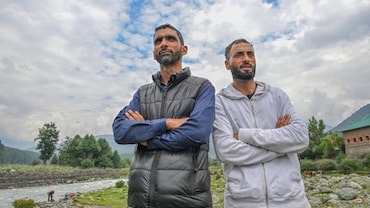- HOME
- /
- True Stories
- /
- Good News
- /
Better Shelters for the homeless
From innovative design to responsible e-waste management, here are some positive stories that came our way

Shelter for refugees
Tents have not evolved much over the years. They usually rely on canvas, ropes and poles and do not last too long when they are used on a permanent basis. But they are still the accommodation of choice when it comes to refugee camps. And that is what led Swedish furniture giant IKEA to apply its flat-pack app-roach to the problem of creating temporary shelters. IKEA's 17.5 sq m Better Shelter (pictured) consists of a steel frame clad with insulated polypropylene panels, with a solar panel on the roof. It can be assembled by four people in four hours and the only tool required is a hammer."If you compare life in the tents and life in these shelters, it's a thousand times better," says Saffa Hameed, 34, who has experienced both at the Al Jamea'a refugee camp in Baghdad. "It's more protected," agrees Saffa's wife, Hind. "We have a door we can close and lock. I feel it's safer and cleaner."The shelter was developed by the not-for-profit IKEA Foundation together with the United Nations Refugee Agency. It costs $1,250, which is twice the cost of a typical emergency tent, but lasts six times longer. Some 16,000 have already been deployed around the world, with more about to be sent to Niger for refugees fleeing Boko Haram.
Metal breakdown
Electronic graveyards and e-waste mountains are a toxic reality. Luckily for us, researchers at the Indian Institute of Science, Bengaluru, have discovered a chemical-free and ecologically sustainable way of getting rid of them. The process: crush e-waste into nano-sized particles with the help of a ball mill (a grinder that blends metals) at low temperatures from minus 50 to minus 150 degrees Celsius. This ensures that there are no noxious fumes. The study published in Materials Today noted that the process helps split the e-waste into single phase components--that is metals, oxides and polymers.
It's never too late...
Every morning, 28 women clad in bright magenta saris, armed with a school bag, slate boards and chalk, set out for school. Between the ages of 60 and 90 years, they are the students of Aajibaichi Shala, a Marathi-medium school that was set up last year, on 8 March 2016 (Women's Day) in Maharashtra's Thane district. Co-founded by the Motiram Dalal Charitable Trust and a local teacher and activist, Yogendra Bangar, this school for grannies teaches them to read, write and do basic mathematics. Hindustan Times spoke to Sitabai Deshmukh, 90, who grew up poor and in a family that didn't encourage girls to study: "Never in my long life had I thought I would get a chance to go to a school ... I have a new life for the last year."Bangar was quoted as saying: "We thought if we could give these grandmothers a fair chance at education and literacy then it would make them very happy." He added that they deliberately chose magenta uniforms as most of the grand-mothers were widows and expected to wear white. "We wanted to break this taboo and other older traditions to make every person feel they are equal and part of the community without any discrimination ..." This initiative will hopefully help women become independent and self-reliant, and transform them into change-makers to motivate and support other women and children from their community.
Paving the way with Gandhian principles
For the past six years, 52-year-old social activist Angad Thakur has been doing his bit to ensure that the train running between Katihar and Manihari on the North-Frontier Railway Division in Bihar generates decent revenue. Incidentally, there is no ticket collector on the train. Clad in a white khadi kurta and Gandhi cap, Thakur, walks up to every passenger travelling on the train and requests them to purchase the ticket that costs Rs 10. The Hindu quoted Ainul Ansari, a co-campaigner, as saying: "If someone is poor, we buy the ticket and ask them to pay whenever they are comfortable."






